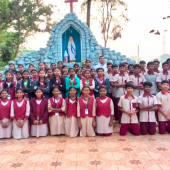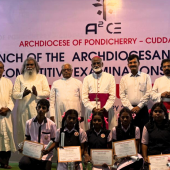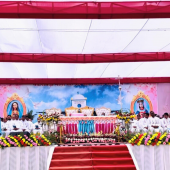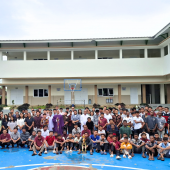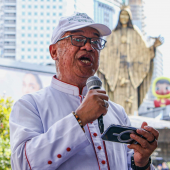India: North Region Catholic Bishops Take Bold Steps to Address Youth Unemployment
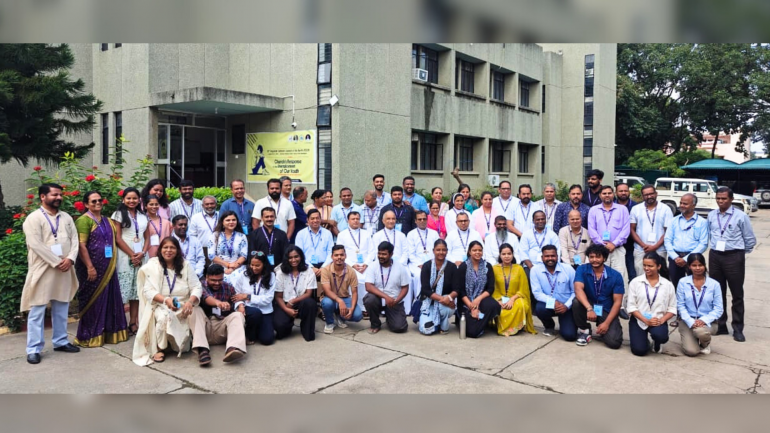
The Regional Catholic Council of the North (RCCN) has come forward with strong and coordinated decisions to address one of the most pressing challenges of today the youth unemployment.
The Regional Bishops’ Council, North, met at Chandigarh from August 30 -31 with the focus on the Church’s pastoral and practical response to the rising unemployment among young people. The gathering was marked by honest sharing of struggles, critical insights, and a hopeful resolve to act with courage and faith.
During this meeting, two new bishops were introduced and warmly welcomed into the RCCN: Bishop Sahaya Thadeus, Bishop of Simla - Chandigarh, and Bishop Jose Sebastian, Bishop of Jalandhar.
The deliberations opened with insights from Adv. Sukhpreet Kaur, a young lawyer from the Diocese of Simla - Chandigarh. She explained the various government schemes, policies, and job opportunities available, while narrating her own journey of struggle and eventual success. Her sharing inspired participants not to lose hope in the face of challenges. Some members voiced concerns that, despite being eligible, Catholics often miss out on government jobs, and many shy away from availing minority benefits.
Fr. Chethan Machado, National Executive Secretary of the Commission for Youth of the Conference of Catholic Bishops of India, offered a detailed analysis of India’s unemployment crisis. He pointed out that the northern states face higher unemployment than the national average, with Haryana recording the highest at 37.4 percent. He underlined that Catholic communities in these regions, though small, face particular difficulties, including migration issues, limited Church infrastructure, and discrimination.
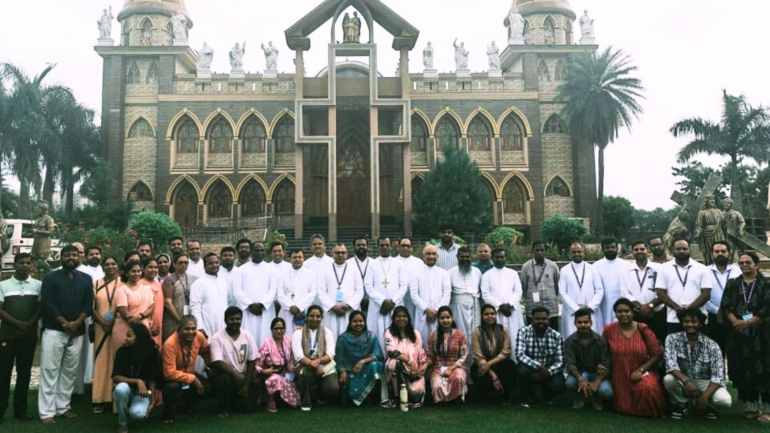
Drawing from Catholic Social Teaching, he stressed the dignity of work as a participation in God’s creative plan. Papal encyclicals such as Rerum Novarum, Laborem Exercens, and Caritas in Veritate, along with Pope Francis’ teachings in Laudato Si’ and Evangelii Gaudium, were applied to the Indian context, highlighting work as sacred and integral to human dignity.
The council also recognized the contribution of Catholic institutions and youth movements. The Indian Catholic Youth Movement reaches 132 dioceses and trains thousands annually in leadership and skills, with significant results in employment. Catholic educational institutions and training centers have helped tens of thousands of students secure placements, while Catholic entrepreneurs are making use of government schemes with encouraging success, though the North continues to lag behind the South.
After much reflection, the bishops and participants resolved to collect data on qualified but unemployed Catholic youth, as well as those employed in government and private sectors. Each diocese committed to working systematically to address the problem. Participants also stressed the need for greater investment in modern education, professional training, and industry partnerships to prepare youth for today’s job market.
A total of 64 participants, including the bishops of Delhi, Jalandhar, Jammu - Srinagar, and Simla - Chandigarh, actively took part in the meeting. Fr. Antony Thuruthil, Deputy Secretary of RCCN, led the organizing team in collaboration with the Diocese of Simla - Chandigarh.
The council concluded with a message of hope: the Church in North India is committed to walking with its youth, not seeing them as a problem to be solved but as a potential to be realized with faith, dignity, and opportunities
Radio Veritas Asia (RVA), a media platform of the Catholic Church, aims to share Christ. RVA started in 1969 as a continental Catholic radio station to serve Asian countries in their respective local language, thus earning the tag “the Voice of Asian Christianity.” Responding to the emerging context, RVA embraced media platforms to connect with the global Asian audience via its 21 language websites and various social media platforms.









